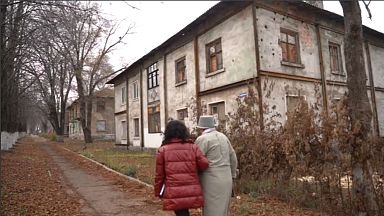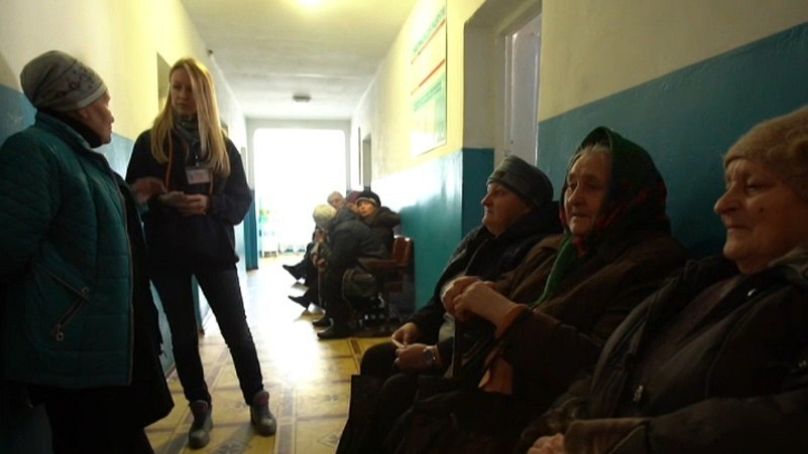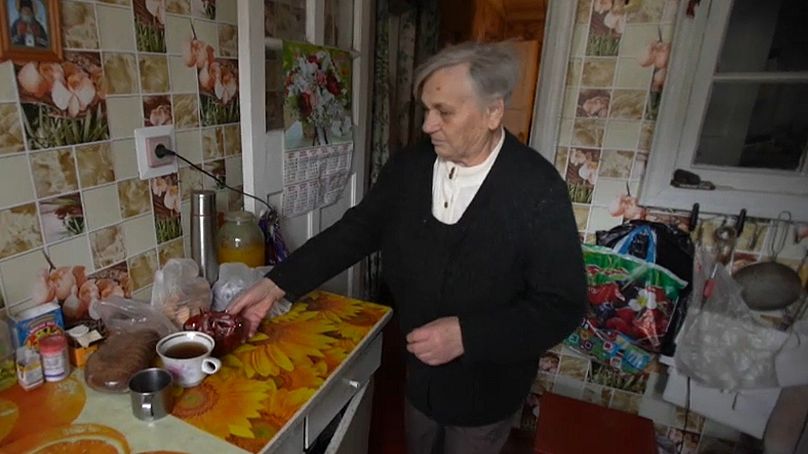When fighting broke out in April 2014, many people including health professionals fled the Luhansk and Donetsk Donbas regions. Those left behind were mainly elderly residents.
Ukrainian forces and Russian-backed separatists have started withdrawing from the line of contact in eastern Ukraine. But the five-year conflict has left a heavy toll, including almost 13,000 people killed.
It has also had a major impact on healthcare services in the region, leaving an estimated 1.3 million people in need of urgent medical help.
When fighting broke out in April 2014, many people including health professionals fled the Luhansk and Donetsk Donbas regions.
The situation facing the village of Zolote-3 is typical. It lies some two kilometres from the line of contact and many of its residents have fled. Those left behind were mainly elderly residents.
Along the line of contact itself, 30 per cent of the residents are over 60. The majority of this ageing population suffers from chronic diseases and the healthcare system is struggling to cope.
Zolote resident Aalla Chemetieva said: “Before the war began we had a general practitioner, a dentist, a gynaecologist and one paediatrician. When the war began people left their jobs without even asking to be paid because they were scared.”
It is estimated that 1,500 healthcare workers have left the area close to the line of contact. Only three nurses, working on a reduced salary, now manage Zolote’s medical clinic. They also visit patients at home.
Olha Poliakova is one of the nurses who stayed behind. She told Aid Zone: “In Zolote we have 1,629 registered patients. Every Friday the doctor comes here, she examines patients, writes prescriptions and carries out some medical interventions. The number of diabetes cases has risen along with hypertension and heart disease, but it’s mostly diabetes.”
The Spanish branch of the NGO, Doctors of the World, financed by EU Humanitarian Aid, started working in the Luhansk region in 2015. It fills the gaps in local staff with two mobile health units.
Diana Serhiienko, a Médicos del Mundo doctor, told Aid Zone: “In our team, we have a psychologist, a midwife, a doctor, a nurse. Every day we go to a different location. There are nine in total. We visit each location twice or three times per month.”
Olena Konopkina, another member of the Médicos del Mundo team, said: “We provide complex primary health care services, as well as referrals to secondary and tertiary care, plus free medication. There are really a lot of needs that are quite urgent among them, for example, the transport connection hasn't been solved. It's still here. The human resources gap is still there.”
Halyna is an 81-year-old widow who lives by herself on a 100 euro monthly pension.
She goes to the medical clinic to receive psychological support and medicine for diabetes. She told Aid Zone it is difficult to access specialised healthcare both in terms of cost and distance. She feels the authorities have abandoned her and the area.
“We used to be the centre of this district and now we are on the line of contact,” she said. “The authorities abandoned us. Nobody is maintaining the buildings and houses around. We are on our own.”
European financial aid has been maintained throughout the war although international funding for healthcare in eastern Ukraine has dropped to 38% of the needs in 2018 from 98% in 2014.
Officials say assistance has been delivered equally on both sides of the contact line, even though needs are harder to assess in areas not controlled by the government.
EU aid worker Srdan Stojanovic said: “In case of developments on the ground, we stand ready to shift our priorities and to provide aid wherever it is necessary, as long as we are given access, as long as our partners are given access to beneficiaries. Whether the peace agreement has been reached or not, there will be a need for humanitarian aid for at least a year or two to come.”














